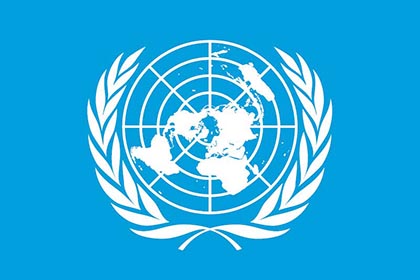
Governments in the world’s poorest countries face difficult choices – how to fund essential services and at the same time ensure quality, accessibility and affordability? The World Investment Forum, organized by UNCTAD, brought government and business leaders together in Geneva on 15 October to address that question at a high-level summit.
The role of the United Nations in this process was highlighted by David Carter, Speaker of the House of Representatives of New Zealand, said: “The private sector has a very important contribution to make as an enabler of sustainable economic development, and Parliaments can support this contribution by creating an enabling environment for investment in key sectors through sound national policy settings.”
One of about 50 events that comprise the Forum, speakers at the second session of the World Leaders Investment Summit debated how investment could be increased in critical areas, such as infrastructure, energy, health and education. Demand is growing for such services, as are challenges linked to climate change adaptation and mitigation. While public authorities take the lead in assuring these services, budgetary constraints have led to calls for increased private funding.
Speakers agreed that it is not always a question of a lack of finance.
“As strange as it may seem, there are investors who are sitting on cash that they cannot invest for lack of adequately packaged or large enough projects,” UNCTAD Secretary-General Mukhisa Kituyi said.
In its World Investment Report 2014, UNCTAD identified almost $200 trillion in assets in the global financial system, some of which could be reoriented to sustainable development outcomes.
The discussion focused on ways to mobilize finance and package investment, even on the smallest scale, to channel it to infrastructure and public services in developing markets. This point was emphasized by Bronwyn Bishop, Speaker of the House of Representatives of Australia.
“Investment does not have to be large scale. Small investments can have a huge impact on development and on people’s lives,” Ms. Bishop said.
Sir Ronald Cohen, Chair of the Group of Eight task force on impact investment, echoed this sentiment when speaking on the role of impact investment
“The issues we face won’t be solved by exhortations to do more. We need innovation in finance and investment approaches,” Sir Ronald said.
Participants, including Ivan Pictet, President of the Fondation pour Genève, discussed how to change mindsets and mobilize finance into what are perceived to be high-risk sectors in often unfamiliar markets.
One solution, according to the Chief Executive Officer of the Japan Exchange Group, Atsushi Saito, is to adopt regional approaches to infrastructure development which can help reduce risks for investors through diversification.
From the perspective of countries seeking investment in crucial areas of need, it is important to ensure that investment contributes to sustainable development.
Zhou Zhongshou, President of China Minmetal, said: “Transnational corporations must do their best to recruit local staff and preserve the local ecosystem. Working together with local communities is key for investment projects, so that ‘one plus one’ is more than two.”
Broadening the discussion to the wider political context in which investors operate, Ahmed Alhendawi, the United Nations Secretary-General’s Envoy on Youth, said that investment must target the developing world’s burgeoning youth population.
“Investment in youth is crucial for peace and stability, which are a prerequisite for the [sustainable development goals],” Mr. Alhendawi said.
The Forum, which brings together more than 3,000 participants from across the global investment community, addresses the world’s development financing challenges and puts sustainable development and responsible investment at the centre of policy discussions. The event is the largest international conference devoted to the issue of investment for sustainable development.